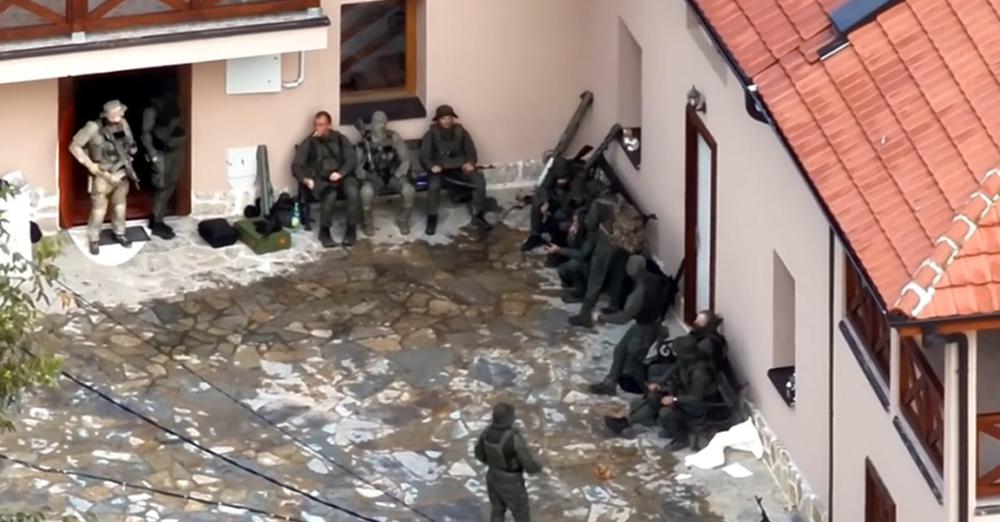One year after Banjska attack: calls for justice intensify

Photo: Radoičić group after Banjska attack
On the first anniversary of the Banjska attack, international and local officials are demanding that Serbia hold accountable the organizers and participants of the deadly assault on Kosovo police officers. Key voices include the European Union, the United States, Germany, and Kosovo authorities.
Why is it significant
Serbia’s refusal to hand over to Kosovo Milan Radoičić, the key leader and organizer of the attack, and its failure to hold him accountable in Serbia – Radoičić and other co-conspirators continue to be free in Serbia – reinforces suspicions that Serbia or at least segments within Serbia’s security apparatus were behind the attack.
What’s happening
The Banjska attack remains a critical point of contention in Kosovo-Serbia relations and that is why the international community, including the EU and U.S are pressing Serbia to hold accountable those involved in the Banjska attack, which left one Kosovo Police officer dead. Despite admissions of responsibility, key suspects remain free in Serbia.
- EU’s stance: The EU has repeatedly urged Serbia to cooperate fully in judicial processes related to the attack, stressing the importance of swift justice for violent acts in Kosovo.
- U.S. response: U.S. Ambassador Jeffrey Hovenier honored Officer Bunjaku, saying, “The United States reiterates its call… that the perpetrators and all those involved in that horrific crime are held fully accountable.”
- Germany’s view: The German embassy in Pristina condemned the lack of consequences for Milan Radoičić, who has admitted to orchestrating the attack, calling it a dangerous precedent for regional security.
What happened in Banjska
On September 24, 2023, a group of armed Serbs ambushed a Kosovo police unit in Banjska, Zveçan, killing Officer Afrim Bunjaku. During later fighting three Serb attackers were killed and the remainder fled to Serbia. The attack is seen by Kosovo as a coordinated effort to destabilize the region and challenge its sovereignty.
- Kosovo’s reaction: Prime Minister Albin Kurti unveiled a street sign named after Bunjaku, emphasizing that the attack was “an aggression against state sovereignty, territorial integrity, and peace.” He accused paramilitary forces, orchestrated and financed by Serbia, of preparing for a larger conflict, citing confiscated arms and ammunition.
Who is Milan Radoičić?
Milan Radoičić, the former vice president of the Serb List, the main political party of the Serb minority in Kosovo, admitted to organizing the attack but remains in Serbia under light restrictions. Despite his admission, Serbia has refused to extradite him to Kosovo, claiming he will be tried domestically, though no serious charges have been filed.


